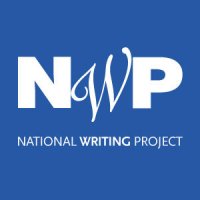
It’s true. I haven’t blogged in six months. So this had better be important, right? You bet. I’m writing because we need to get our priorities in order when it comes to this great experiment we call democracy. And that has everything to do with the fact that the National Writing Project has been defunded.
Let me work it backwards. I started working in public schools ten years ago, at the ripe young age of eighteen, as a tutor and mentor. I’ll be honest – for many of my early years in schools I was not inspired by the teachers I observed or worked with. There were a few though that were clearly dedicated to the youth, to the practice of pedagogy, to figuring out the best way to be an educator. These people played a role in my own choice to become an educator. I chose though to work outside of schools, in the spaces on the fringes where innovation seemed more possible, in afterschool programs, libraries, museums, on the internet with emerging collaborative communities.
And for years into my professional experience I had experiences in schools that echoed my early ones – not necessarily just with individuals, but rather with cultures that seemed reactive, unsupportive of those that worked within them, that seemed to be allergic to learning and changing themselves. To be clear – this was my own limited experience in a very limited number of schools. I have no doubt that there are many out there that don’t fit this bill. And I point to these experiences here mainly to provide a contrast to so many of those I’ve had since I came into contact with the National Writing Project.
I had the opportunity to start working with NWP in 2009 through their Digital Is initiative, where I and my (then) colleagues shared some of the work our organization had been doing experimenting with pedagogical approaches that meaningfully incorporated new media. And while I went in to share the practices that I’d developed, I ended up very much being a learner in the many interactions I had with the people involved in NWP. Immediately I saw a culture where teachers were constantly working to push their practice, share technique, reflect on student work and experiment with new approaches in a way I’d never seen in the schools I worked in. This was not singular individuals – it was a culture of learning among teachers, national in scope, vision and participation and highly specialized to the local contexts in which it worked.
As my friend Paul Oh, a friend at the NWP describes, the Project is both an infrastructure and an idea. It’s both about supporting local chapters (over 200) and partnerships between teachers in the network and local colleges, as well as about a broader idea of, as Paul puts it, “Teachers Teaching Teachers” and trusting in the expertise of a group of people dedicated to their craft and to young people’s expressive capacity.
That this and so many other literacy programs are getting cut is astounding to me. As my friend Bud Hunt, also a teacher in NWP, says, the budget of the organization, when viewed in national federal budget terms, is a rounding error. The effects defunding might have on actual youth, on the other hand, are not. Just so it’s clear that this is not only a personal issue of having friends and colleagues that are effected, NWP has consistently shown through research the efficacy of its work for student outcomes.
Cuts to a program like NWP are problematic on many levels. On one, they set a precedent for future cuts to social programs that reflect an ideology that says the role of government is to get out of the way, rather than to assure that those most vulnerable in society are able to succeed. On another, it plays into a very disturbing current trend in the educational world to strip teachers of support (look no further than Wisconsin for evidence of that). A culture like NWP’s takes time and resources to develop, and losing support will have major impact on the ability of that culture to continue to provide a space where teachers can reflect on their practice. Finally, and most importantly, these sorts of cuts indicate that we now live in a country unwilling to invest in having a future generation prepared to engage in the democratic process in an informed way, the basis of Jefferson’s vision for how this country would work. Without informed citizenry, we don’t have democracy. Education is at the heart of that, and if, when the going gets rough, we decide to stop investing there, well, we are shooting only ourselves in the foot.
Many people are blogging this weekend in support of NWP, check them out, and, if you’re inspired, contact your state representatives to save NWP and put them back into the coming year’s budget.





Thanks for using your voice. I just finished participating in the Yellowstone chapter of NWP (in fact, we just finished today). I am confident will be able to help The Project continue; we just need to be creative in how we establish our “new normal”. With so many amazing and talented minds who support The Project, we will surely be able to find an innovative solution to protect this precious resource. I know we’re working on it in Montana! :) Thanks for sharing your thoughts. Keep the good fight! :)